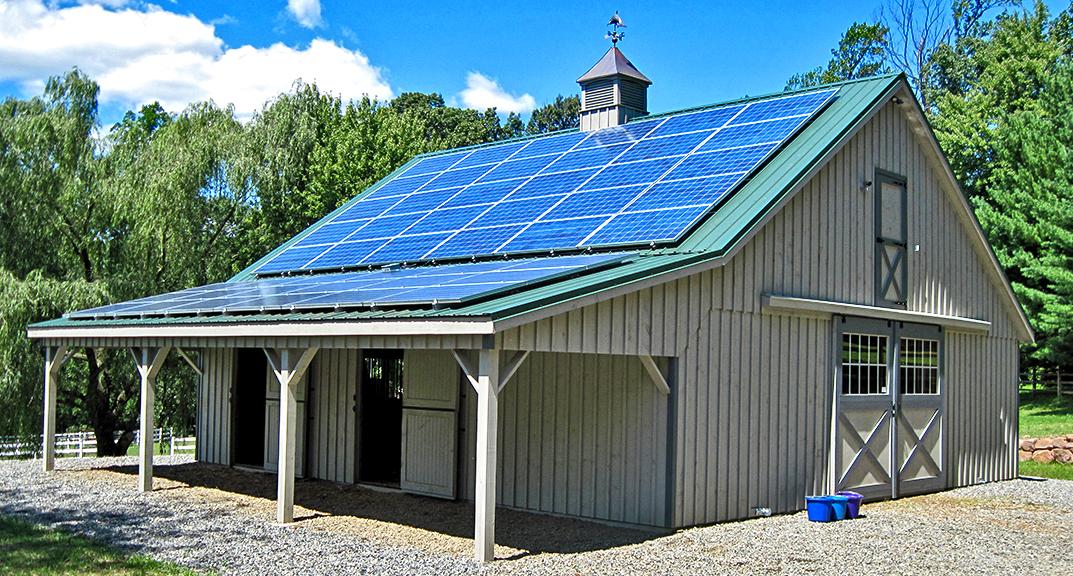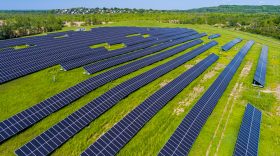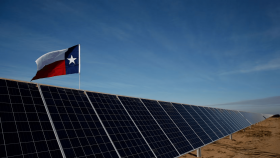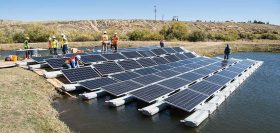Across the U.S., states governments are struggling to craft laws that are fair for solar owners.At the same time, they are feeling the pressure from powerful utility industry lobbyists. In the first of an ongoing series of articles on state solar legislation, Solar Tribune focuses on solar news from around the American heartland.
—-
Solar In Michigan
At the end of 2016, Michigan Governor Rick Snyder signed bipartisan legislation to update Michigan’s energy policy. Among other improvements, the new laws increase the Renewable Portfolio Standard (RPS) from 10 percent to 15 percent by 2021. On February 2017, the Michigan Public Service Commission released a report on renewable energy in Michigan that shows that the state aspires to become an emerging leader in the renewable energy sector, and the increase in the RPS illustrates that commitment.
Michigan is currently #34 on the list of solar producing states, but the bill signed in December helps to protect net metering at a time when utility companies are waging war on indie and rooftop solar producers.
Solar in Wisconsin
Utility Dive reported that a Dane County Circuit Court judge has remanded two Wisconsin Public Service net metering decisions back to state regulators, agreeing with clean energy advocates that more explanation was needed.
- Renew Wisconsin had challenged a 2013 decision limiting the size of solar systems and reducing the net metering accounting period, which the group said allowed the utility to pay less to customers with rooftop generation.
- The same judge struck down a 2012 PSC decision allowing Milwaukee-based We Energies to limit the availability of its net metering service to solar customers, similarly citing a lack of evidence in the hearing record.

Solar in Minnesota
A bill has reached the desk of Gov. Mark Dayton hat would remove the Public Utility Commission’s authority to regulate the state’s six generation-and-transmission cooperatives. The bill would allow electrical co-ops to set their own fee structures without state oversight, and this would allow the co-ops to set special rates for solar producers, effectively gutting net metering for co-op customers. The Solar Energy Industries Association (SEIA) urged Dayton to veto the bill.
“Under Gov. Dayton’s leadership, Minnesota has transformed into a national leader in solar energy with nearly 3,000 solar jobs in the state,” said Sean Gallagher, SEIA’s vice president of state affairs. “HF 234/SF 141 risks slowing that progress. This bill would enable cooperative utilities to target solar customers with unfair fees and limit their ability to fight back, making it more difficult for Minnesota residents to go solar.”
Solar in Iowa
Iowa’s second largest electricity provider, Alliant Energy, has been granted permission by the Iowa utilities board to cap based on a percentage of a customer’s annual usage. According to an editorial in the Cedar Rapids Gazette by Ideal Energy CEO Troy Van Beek, the new net metering cap will reduce available net metering by 62 percent for residential customers and by 68 percent for small business customers. Van Beek calls the new system “extraordinarily complex and opaque…among the most complicated in the nation.”
Solar in Illinois
Senate Bill 2814 has passed and is expected to be signed by the Governor. Similar to Michigan’s new energy overhaul bill, Illinois SB 2814 reforms the state’s RPS.
Exelon is still getting the main thing that it wants from this bill: a bailout for aging nuclear power plants in the state. Luckily for solar customers, a controversial demand charge and repeal of net metering have been stripped from the bill.
Solar in Indiana
As in many states, GOP lawmakers are doing the bidding of large fossil fuel industry lobbyists. If Senate Bill 309 is passed, net metering will be ended, and solar customers in Indiana would sell all of the power they produce at a wholesale rate of about $0.03/kWh, and purchase the power they need at $0.11/kWh. This senate bill will go to the Indiana house, where hopefully, it will be defeated.
Solar in Missouri
In September of last year, Jackson County became the first place in Missouri to offer Property Assessed Clean Energy (PACE) programs to residents Communities in St. Charles County, St. Louis County, Franklin County and Jefferson County have been among those to follow suit. According to the St. Louis Post Dispatch, The programs enable property owners in participating communities to pay for certain improvements through a bump in property taxes, typically spread over a five- or 20-year period. Instead of shouldering the upfront cost, homeowners are eligible for lending of up to 20 percent of their assessed property value. That often provides more than enough for solar projects.







